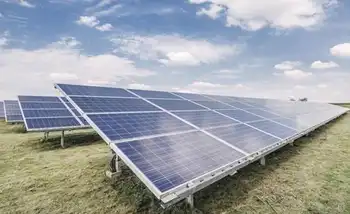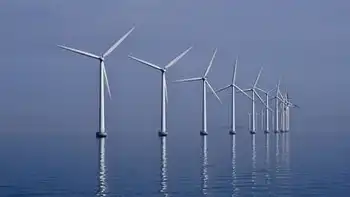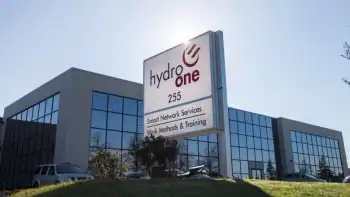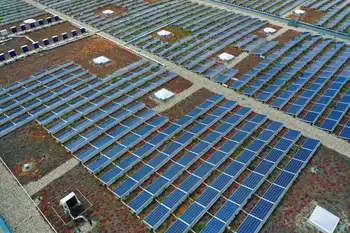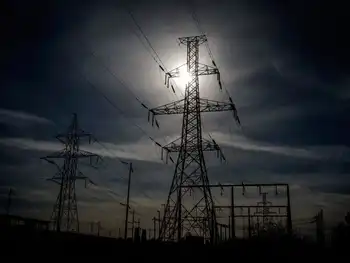Carbon capture gets $779 million kick-start
By Calgary Herald
CSA Z463 Electrical Maintenance
Our customized live online or in‑person group training can be delivered to your staff at your location.

- Live Online
- 6 hours Instructor-led
- Group Training Available
Prime Minister Stephen Harper attended the ceremony as the funding was announced for TransAlta Corp.'s project for its Keephills 3 coal-fired electricity generation plant near Wabamun Lake.
Called Project Pioneer, it is intended to capture and store up to one million tonnes of CO2 a year as one of the world's first large-scale carbon capture and storage facilities.
Harper said such projects "will define the future of this industry. Carbon capture and storage has the potential to help us balance our need for energy with our duty to protect the environment."
The two governments laid down their first big bet in the fight to limit CO2 by promising Shell Energy a total of $865 million for its Quest project near Fort Saskatchewan, northeast of Edmonton.
"Perfecting technology to reduce greenhouse gas emissions from coal-fired electricity generation will not only have a significant impact in Alberta, but it could help throughout North America and in developing nations like China," Alberta Premier Ed Stelmach said.
"This project provides an opportunity for Alberta to be a leader in developing game-changing carbon capture technology that could be used around the globe."
TransAlta had not originally been shortlisted for the Alberta funding announced in June, but found a place when Capital Power, formerly known as Epcor, decided to shelve its winning integrated gasification proposal due to poor economics.
"Our Genesee project was no longer in the running because the economics did not support the project going forward," Capital spokesman Michael Long told the Herald. "The economics wouldn't work even with the government funding with the prices that we are seeing right now."
Power prices in Alberta's deregulated electricity market have declined dramatically in the past year as industrial demand — the main consumer of power in the province — dropped in tune with the recession.
The average annual price per megawatt hour was $47.77, according to the Alberta Electric System Operator.
One of the key differences between the two projects is TransAlta's Keephills project proposes stripping carbon dioxide emissions post-generation, rather than during the generation process, as proposed by Capital Power.
The Pioneer project will capture the carbon dioxide from the Keephills 3 coal-fired generation plant using chilled ammonia.
The CO2 will be used for enhanced oil recovery in nearby conventional fields, or stored almost three kilometres underground, resulting in reduced emission by 2012.
Just a few years old, Keephills 3 is a coal-fired plant jointly owned by Capital Power and TransAlta.
The under-construction Genesee 3 plant is a copy of Keephills 3, and will also be shared by both utility firms.
"Carbon capture and storage provides Alberta and Canada a global leadership opportunity to develop new technologies to reduce CO2 emissions," said Steve Snyder, president and CEO of TransAlta.
"Government and industry partnerships such as this are a critical catalyst required to accelerate implementation of these new technologies that will make Canada a global leader in CO2 reductions through CCS."
Greenpeace, meanwhile, said the announcement was tantamount to using public money to clean up industry's mess.
"That cost should be borne by industry and industry alone," said spokesman Mike Hudema.
"Industry created these toxic messes and they should be fully and financially responsible for cleaning it up."
Hudema said if the federal and provincial governments were serious about climate change, they would invest the money instead in "renewables and conservation efforts."
With this announcement and signing of a letter of intent, Alberta's committed funding toward commercial-scale greenhouse gas reductions is almost $1.2 billion, leading to anticipated emission cuts of about 2.2-million tonnes per year.
The Alberta government is continuing to pursue letters of intent with announced project proponent Enhance Energy and Northwest Upgrading, and potentially one or two more runner-up proposals for the remaining available funding, spokesman Bob McManus said.





